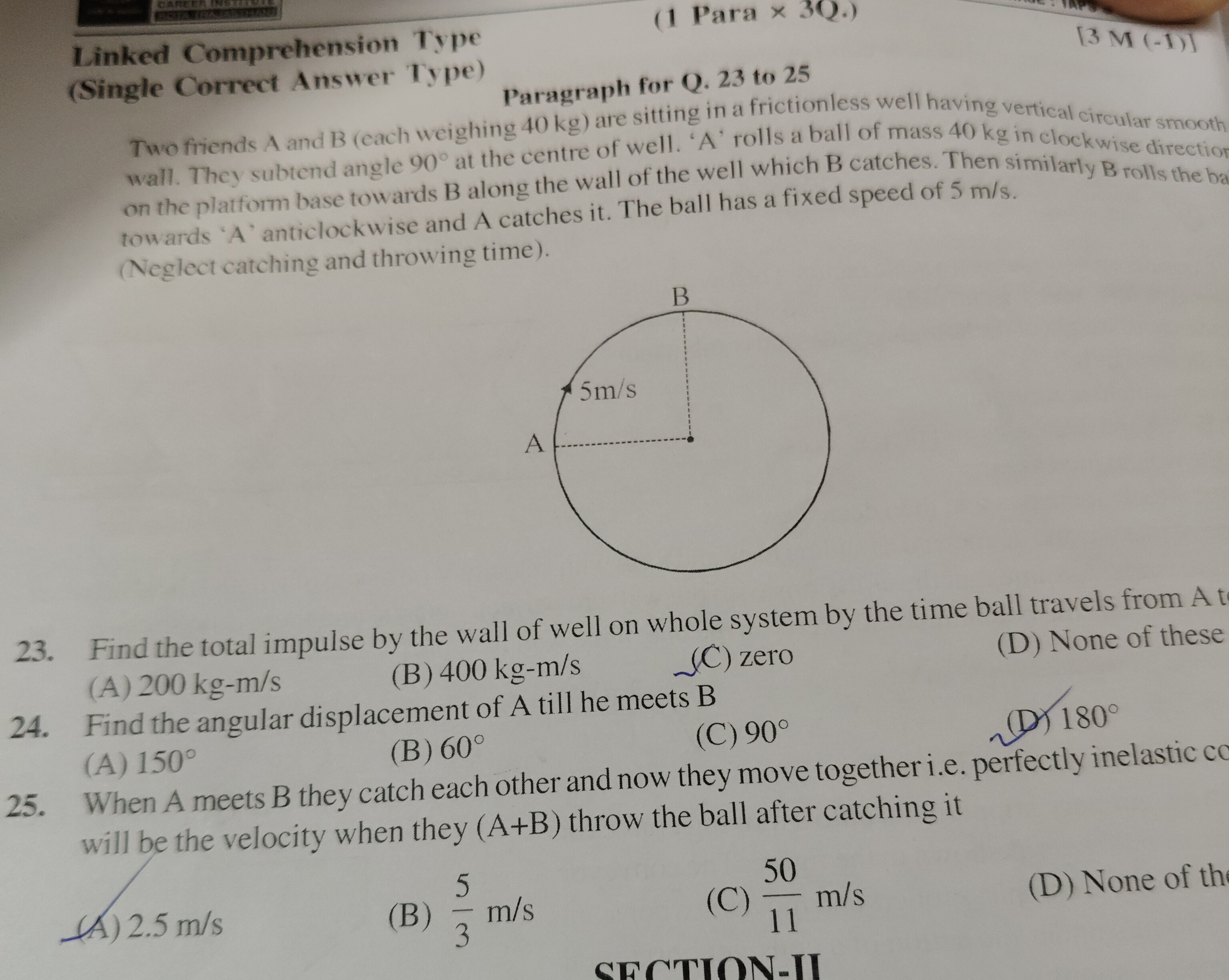Question
Question: Find the total impulse by the wall of well on whole system by the time ball travels from A to B...
Find the total impulse by the wall of well on whole system by the time ball travels from A to B

200 kg-m/s
400 kg-m/s
zero
None of these
200 kg-m/s
Solution
The problem involves the conservation of angular momentum and linear momentum in a system where external forces (normal force from the wall) are present. The key is that the well wall is "smooth" and "circular", implying that the normal force always passes through the center of the well, thus exerting no torque about the center. This leads to the conservation of angular momentum of the system (A + B + ball) about the center of the well.
Let mA=40 kg, mB=40 kg, mball=40 kg. Let v=5 m/s be the speed of the ball.
The total impulse by the wall on the whole system is equal to the change in the total linear momentum of the system: Jwall=ΔPsys=Psys,final−Psys,initial.
Initially, the entire system (A + B + ball) is at rest, so Psys,initial=0. Therefore, Jwall=Psys,final.
At the instant B catches the ball:
- A is at (−R,0) and has been moving clockwise (velocity −5j^). Its momentum is PA=mAvA=40(−5j^)=−200j^ kg-m/s.
- B and the ball are at (0,R) and moving together with velocity −2.5i^ m/s. Their combined momentum is PB+ball=(mB+mball)VB+ball=80(−2.5i^)=−200i^ kg-m/s.
- Total final momentum of the system: Psys,final=PA+PB+ball=−200j^−200i^ kg-m/s.
The magnitude of the total impulse is: ∣Jwall∣=∣Psys,final∣=(−200)2+(−200)2=40000+40000=80000=40000×2=2002 kg-m/s.
Since 2002 is not an option, and 200 is an option, it's possible they are asking for a component. If the question was "Find the magnitude of the impulse component by the wall in the x-direction", it would be 200. If the question was "Find the magnitude of the impulse component by the wall in the y-direction", it would be 200.
